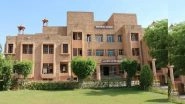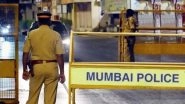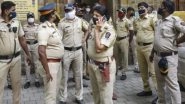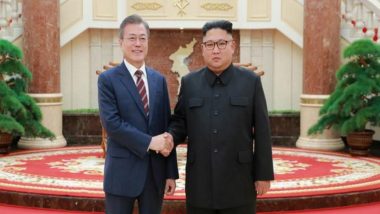Seoul, Sep 19: North and South Korea on Wednesday signed a joint military agreement and a joint statement during South Korean President Moon Jae-in's visit to Pyongyang to heighten peace and denuclearisation talks.
President Moon and Kim have also proclaimed the end of the state of war, the South Korean presidential spokesperson confirmed, reported Sputnik. "Leaders of the South and the North have, in fact, announced the end of the war on the Korean Peninsula by their agreements," the spokesperson said.
The joint military agreement was signed by South Korean Defense Minister, Song Young-moo, and North Korean Defense Minister of People's Armed Forces, No Kwang Chol in the presence of South Korean President Moon Jae-in and North Korean leader Kim Jong Un.
As part of the agreement, North Korea and South Korea agreed to cease large-scale artillery exercises and military flights near the demilitarized zone to prevent incidents.
"Both sides decided to cease military exercises directed against each other near the Military Demarcation Line (MDL) from November 1. It was decided to completely stop the artillery drills and field exercises of more than a regiment at a distance of 5 kilometres from the MDL," the document says.
The imposition of a no-fly zone for all military aircraft over the buffer zone was also agreed to by the two sides. The buffer zone will be declared within 40 kilometres from the military demarcation line in its eastern part and within 20 kilometres in its western part.
In addition, the neighbouring nations decided to withdraw troops from the demilitarized zone (DMZ) and disarm military personnel at the shared border village of Panmunjom, along with the demilitarization of the joint security area there.
"Both sides have agreed to fully withdraw guard posts of the South and the North at a distance of more than 1 kilometre as experimental measures for the complete withdrawal of guard posts from the demilitarized zone," a statement read.
Following the summit, President Moon and Kim signed a joint statement. Their meeting took place in the official residence for the honourable guests. As part of the joint statement, North Korea has promised to close its missile test range in Tongchang-ri and completely disassemble nuclear facilities in Yongbyon.
"The North side, in accordance with the spirit of the joint statement between the North [Korea] and the US, expressed its intention to take additional measures, such as the complete dismantling of the nuclear facility in Yongbyon," the statement read.
Pyongyang also decided "to completely dismantle the test range of rocket engines and the launch pad in Tongchang-ri under the supervision of experts from the countries concerned," the statement added.
The two Koreas also agreed to begin before work on interconnecting roads and railways through the buffer zone that separates the countries. "The South and the North agreed to hold a ceremony of launching works on docking of railways and highways in the west and east this year," the document says.
This project is aimed at connecting the Trans-Korean Railway to the Trans-Siberian Railway for deliveries of cargoes to Europe via North Korea and Russia.
Meanwhile, US President Donald Trump expressed happiness over the developments in the Korean peninsula on his official Twitter account, saying: "Kim Jong Un has agreed to allow Nuclear inspections, subject to final negotiations, and to permanently dismantle a test site and launch pad in the presence of international experts. In the meantime, there will be no Rocket or Nuclear testing. Hero remains to continue being returned home to the United States. Also, North and South Korea will file a joint bid to host the 2032 Olympics. Very exciting!"
Russia also welcomed the inter-Korean summit as reconciliation between the North and the South will ease tensions and create an atmosphere of mutual trust on the Korean Peninsula, Russian Ambassador to North Korea Alexander Matsegora told Sputnik.
"We view the meeting between the two leaders of North and South Korea as purely positive. Reconciliation between the two parts of the Korean Peninsula is exactly what will help to ease tensions, create an atmosphere of mutual trust, mutual consideration for the interests of each other, and, consequently, this will lead to reduction of military tensions" Matsegora said.
The meeting between the two Korean leaders in the North Korean capital, which saw President Moon become the first South Korean head of state to visit North Korea in over a decade, was their third this year. The two had first met at Panmunjom in the Demilitarised Zone (DMZ) in April, followed by the second meeting in May.
A fourth meeting was confirmed by Kim, with the agreement signed by the two stating that "Chairman of the State Council Kim Jong Un agreed to visit Seoul at the invitation of President Moon Jae-in in the near future." No North Korean leader has ever visited the South Korean capital.













 Quickly
Quickly


